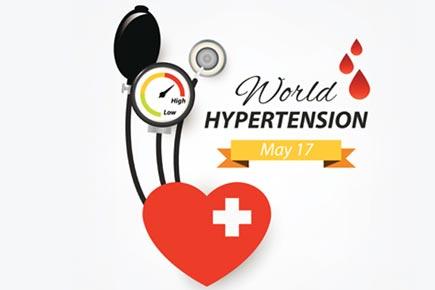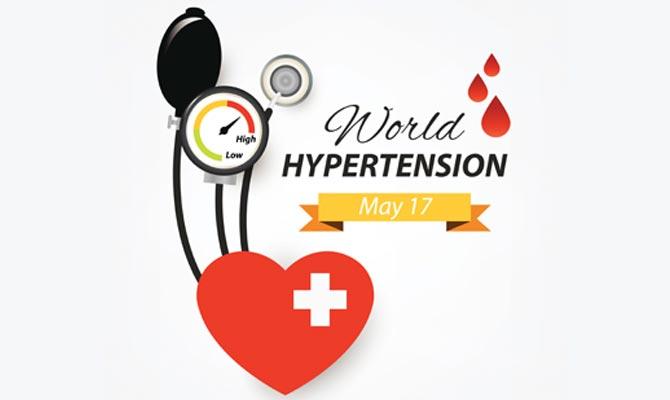Hypertension, also known as high or raised blood pressure, is a condition in which the blood vessels have persistently raised pressure


Regulating salt consumption is key to prevent hypertension, which is associated with an increased risk of heart disease, heart attack, stroke and heart failure, say experts. According to World Health Organization (WHO), adults should reduce consumption of sodium to less than 2 grams a day, or the equivalent of about one teaspoon of table salt to reduce the risk of heart disease.
Hypertension is a condition in which the blood vessels have persistently raised pressure. Hypertension is also referred to as high or raised blood pressure. Hypertension can also affect fertility in both males and females, says Rajalaxmi Walavalkar of Cocoon Fertility. Hypertension not only affects fertility but also is also known to cause trouble sleeping. Trouble sleeping leads to signs of premature ageing, like fine lines, uneven pigmentation and reduced elasticity.
"Hypertension can lead to cardiovascular diseases. The rise in blood pressure caused by eating too much salt may damage the arteries leading to the heart," Vijay D'Silva, Director at the Asian Heart Institute, said in statement.
According to a recent study, published in the journal Hypertension, about half of adults living in Asia are suffering from the high blood pressure.
While lifestyle factors, including diet and stress, are behind the high hypertension rates in Asia, one common problem is high salt intake, the study showed.
Asians not only tend to have diets high in sodium, but they are genetically more sensitive to sodium, the researchers said.
"Raised blood pressure due to high salt consumption is the biggest single contributing risk factor for non-communicable diseases and damage to your kidney," explained Bhupendra Gandhi of the NGO Amar Gandhi Foundation.
Previously, it was believed that eating high amounts of fruit and vegetables might help counteract the effect of high salt on blood pressure.
However, another study led by researchers from the Imperial College London and Northwestern University, showed that people eating higher amounts of salt had higher blood pressure -- no matter how healthy a person's overall diet.
"Anyone with hypertension is at an increased risk of infertility. A high salt diet leading to high blood pressure can result in delayed puberty and even impact reproductive health," Walavalkar noted.
Besides affecting the heart and fertility, hypertension can affect the skin too, the health experts said.
"High blood pressure can harden your arteries, which decreases the flow of blood and oxygen. An impairment of the flow of oxygen, to an organ such as your face, can cause your skin to dry and wrinkles faster which can make one look less youthful," said Amit Karkhanis - Medical Cosmetologist and founder of Dr Tvacha clinic.
Reducing salt consumption in everyday life, cutting down on fried foods and processed foods, can not only curb the problem of hypertension but also save multiple organs from damage and pave way for a healthy life.
Also read: Mumbai Health: These 7 Lifestyle Changes May Help Lower Heart Disease Risk
(Edited by mid-day online desk, with inputs from IANS)
Catch up on all the latest Mumbai news, crime news, current affairs, and also a complete guide on Mumbai from food to things to do and events across the city here. Also download the new mid-day Android and iOS apps to get latest updates
 Subscribe today by clicking the link and stay updated with the latest news!" Click here!
Subscribe today by clicking the link and stay updated with the latest news!" Click here!







